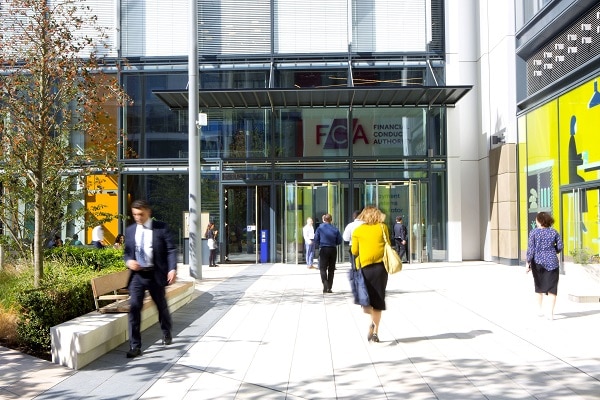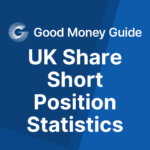Insider trading covers a number of offences under UK law however the main principle is that someone deals in stocks and shares, or other securities, whilst in possession of inside information (that is information that is not in the public domain), this is also known as being an investing insider.
By, for example, buying shares in a company that they know to be a takeover target. Or, selling securities related to a company ahead of the release of an unpublished profits warning.
The FCA’s Market Abuse Regulations (MAR) make the following observations:
“Inside information is not always easy to identify. But it is important that you consider whether the information your organisation or department, has or creates, could be inside information.”
And that:
“MAR defines inside information as information of a precise nature which has not been made public, that directly or indirectly relates to one or more issuers or financial instruments”
“Which, if it were made public, would be likely to have a significant effect on the prices of those financial instruments, or on the price of related derivative financial instruments”
According to the Information Commissioner’s Office, or ICO, information is considered to be in the public domain
“If it is easily, readily and realistically accessible to the public.”
Three Insider Trading cases that hit the headlines
- Tory MP and Author Jeffrey Archer was investigated for insider trading way back in 1994. The investigation came about as MAI, the owners of Meriden TV, made a £292 million bid for rival UK broadcaster Anglia TV. Where Archer’s wife was a non-executive director. The Department for Trade and Industry, which conducted the investigation found that it should take no further action on the matter.
- In 2016 the FCA concluded what was the UK’s largest insider trading case, operation tabernula, which began back in 2007. The case involved dawn raids and wiretapping and cost £14.0 million. And led to the conviction of a senior investment banker and an accountant, both of whom served prison sentences and faced confiscation of funds. Several other defendants were acquitted.
- In 2021 the FCA moved against a former Goldman Sachs analyst and his brother, a lawyer at a leading city firm. The pair were charged with six offences of insider dealing and three of fraud. They are said to have made profits of £142,000 through trades in ARM Holdings, Alternative Networks, Shawbrook, and others between July 2016 and December 2017. The case will come to trial in November this year.
Whose responsibility is it to prevent insider trading?
Both brokers and regulators have surveillance and reporting measures in place that are designed to identify suspicious trading patterns, including insider trading.
However, these measures are usually applied post-trade.
In essence, it’s up to those that hold or are in a possession of sensitive information, to decide if that information is in the public domain, or, constitutes inside information before they act on it.
If you come into possession of price-sensitive information and are in any doubt about whether that information is in the public domain. Then it may well be worth seeking legal advice.
Because, acting on inside information is a crime, under the UK Criminal Justice Act of 1993, which can carry a sentence of up to 10 years of imprisonment, and the potential for unlimited fines.
Despite a supposedly robust surveillance regime insider dealing convictions are not that commonplace in the UK. And as of June 2022, the FCA had only managed to convict two individuals over the previous 5 years, a former city banker, and her day trading accomplice.
That despite a rise of 75% in the number of FCA investigations into possible insider trading. Although, according to the newspaper City AM, the number of FCA investigators looking into these incidents has fallen to a decade low.
That’s not to say that insider trading doesn’t go on, research suggests that as many as one-fifth of UK takeover deals are subject to abnormal price movements, ahead of public announcements.
The FCA is currently pursuing a case against 5 individuals, including a former city analyst, who are accused of using inside information to trade in CFDs and generate profits of some £1.50 million. The case is set to come to court in late February.

With over 35 years of finance experience, Darren is a highly respected and knowledgeable industry expert. With an extensive career covering trading, sales, analytics and research, he has a vast knowledge covering every aspect of the financial markets.
During his career, Darren has acted for and advised major hedge funds and investment banks such as GLG, Thames River, Ruby Capital and CQS, Dresdner Kleinwort and HSBC.
In addition to the financial analysis and commentary he provides as an editor at GoodMoneyGuide.com, his work has been featured in publications including Fool.co.uk.
As well as extensive experience of writing financial commentary, he previously worked as a Market Research & Client Relationships Manager at Admiral Markets UK Ltd, before providing expert insights as a market analyst at Pepperstone.
Darren is an expert in areas like currency, CFDs, equities and derivatives and has authored over 260 guides on GoodMoneyGuide.com.
He has an aptitude for explaining trading concepts in a way that newcomers can understand, such as this guide to day trading Forex at Pepperstone.com
Darren has done interviews and analysis for companies like Queso, including an interview on technical trading levels.
A well known authority in the industry, he has provided interviews on Bloomberg (UK), CNBC (UK) Reuters (UK), Tiptv (UK), BNN (Canada) and Asharq Bloomberg Arabia.
You can contact Darren at darrensinden@goodmoneyguide.com





